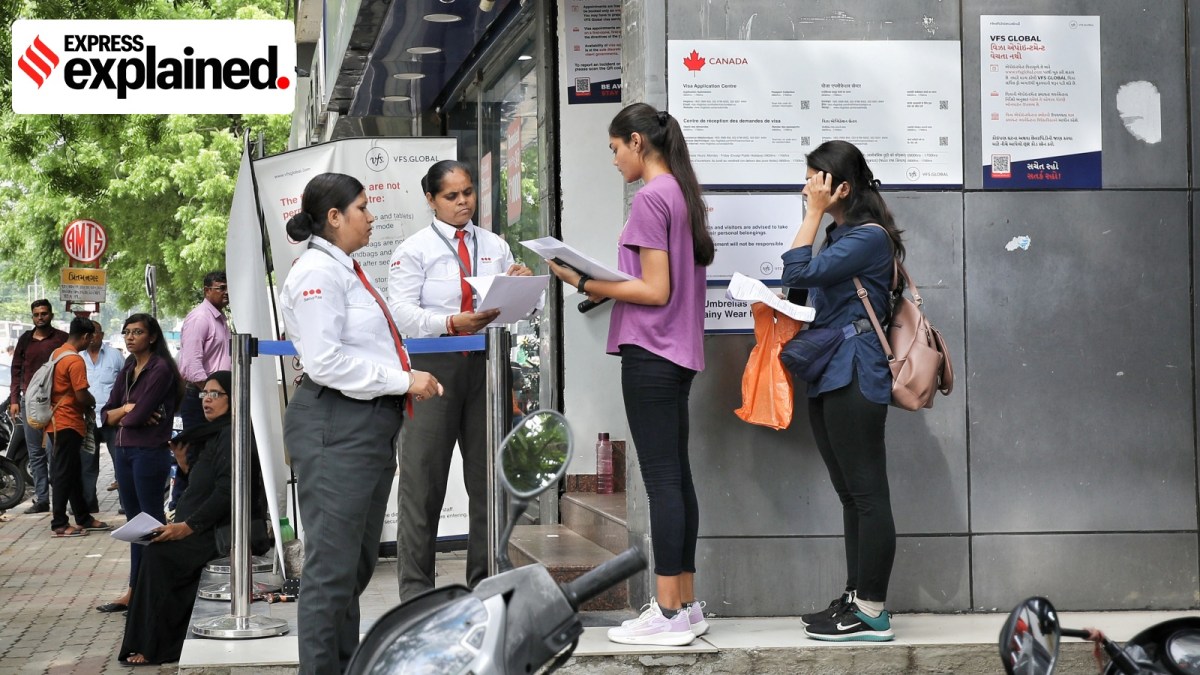How AI may be behind drop in student visas issued by Canada to Indians
Experts suggest that instead of relying on AI tools, students should put in genuine hard work to maximise their chances of being able to study abroad

There has been a significant drop in the number of student visas issued by Canada in recent months. In the first quarter of 2025, the country issued only 96,015 study permits, down from 1,21,070 in the same period last year, data from Immigration, Refugees and Citizenship Canada (IRCC) show. The number of visas issued to Indian students came down from 44,295 in Q1 2024 (which made up 36.5% of approvals) to 30,640 (31.9% of total) in Q1 this year.
Several students have blamed the use of artificial intelligence (AI) tools for their rejections: they allege that AI-driven systems in the visa process are leading to rejections without proper human review. And while experts agree that AI may be the culprit, they point to a completely different problem.
Use of AI in applications
Experts say the real problem lies with hopefuls submitting poorly-prepared AI-generated applications and not paying enough attention to compiling essential documentation and ensuring academic consistency.
They say that many students, and even study abroad consultants, are becoming overly dependent on AI for preparing visa-related documents, especially Statements of Purpose (SOPs).
“I totally believe that both students and their respective consultants are using AI to prepare files, and they are now facing the consequences,” said Tirath Singh, a study abroad expert who has been running the consultancy Pinnacle Immigration for more than a decade.
Why this is a problem
While there are no explicit instructions about not using AI for applications, experts say that the tech ends up producing similar, templated content which prevents applicants from standing out or appearing to be genuine.
AI-generated SOPs, for instance, often sound robotic, impersonal, and repetitive which raises red flags for visa officers who go through these documents. Such SOPs also lack personal insight or fail to establish a clear connection between an applicant’s background and future goals.
Moreover, relying on AI signals a lack of seriousness and effort, which can negatively impact visa approval chances, said Gurpreet Singh, a study abroad expert, who has been running the i Can consultancy for more than a decade.
“Students and their consultants must work hard while preparing the SOP. It should clearly outline the applicant’s career goals, the relevance of the chosen course, the reason for selecting Canada as a destination, and how it aligns with their long-term plans… Visa officers are looking for genuine intent, clarity of purpose, and proof that a student has thoughtfully planned their education journey,” Tirath Singh said.
Other docs important
In addition to a strong SOP, Tirath Singh emphasised on the importance of detailed proof of funds with credible financial documents, as well as honest and accurate paperwork. Any mismatched or exaggerated claims, he warned, can lead to outright rejection.
“Blaming AI won’t help. Students must take full responsibility for their application. Instead of depending on shortcuts like AI tools, a sincere and well-prepared file/applications stand a far better chance of success,” he said.